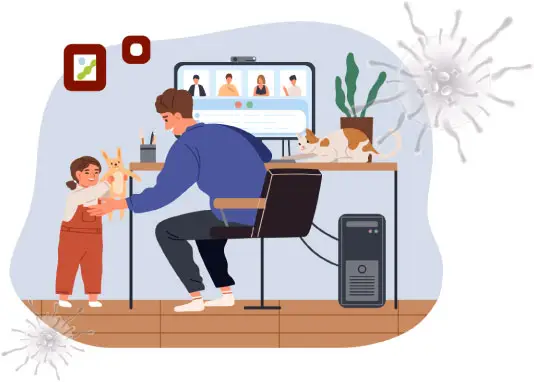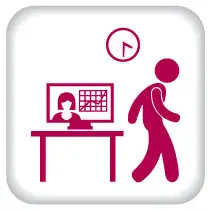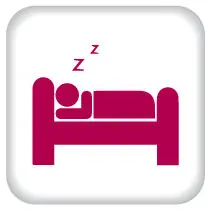
WORKING FROM HOME?
Regaining Balance in an Unbalanced Environment.
The uncertainty surrounding the Covid-19 situation in the country amid warnings of an impending third wave has left companies with no clear-cut answers about when employees can be called back to office. While companies are trying to figure out when to call employees back to office, employees working from home are frequently under tremendous stress, which eventually will lead to burnout if left unaddressed.
Everyone who has ever held a job has, at some point, felt the pressure of work-related stress. Any job can have stressful elements, even if you love what you do. In the short-term, you may experience pressure to meet a deadline or to fulfil a challenging obligation. But when work stress becomes chronic, it can be overwhelming—and harmful to both physical and emotional health.
How you cope with these emotions and stress can affect your well-being, the well-being of the people you care about, your workplace, and your community. During this pandemic, it is critical that you recognize what stress looks like, take steps to cope with it, and know where to go if you need help.
What Is Stressful About Working At Home?

Employees who work from home may experience more of a blur when it comes to work and personal life boundaries, especially with the use of smart devices. Further, work-from-home employees may struggle more with the concept of unplugging and ending their workday compared to those who work in an office setting.

Lack of Structure

Too many interruptions

Difficulty Setting Boundaries

Social
Isolation

Less Physical Exertion
First, recognize the symptoms of the stress you are experiencing.
Work-from-home stress can make functioning on a daily basis more challenging. Centers for Disease Control and Prevention, USA (CDC) has provided some common symptoms of prolonged stress such as:

Feeling irritation, anger, or in denial

Feeling uncertain, nervous, or anxious

Lacking motivation

Feeling tired, overwhelmed,
or burned out
or burned out

Feeling sad or
depressed
depressed

Having trouble
sleeping
sleeping

Having trouble
concentrating
concentrating
Second, find ways to manage the stress you are experiencing.
Know that if you are working from home and feel intense pressure, you are not alone. Here are some strategies for reducing your overall stress. Some of these have also been recommended by the CDC.
Communicate with your coworkers, supervisors, and employees about job stress
Identify things that cause stress and work together to identify solutions. Talk openly with employers, employees, and unions about how the pandemic is affecting work. Expectations should be communicated clearly by everyone.
Create a routine
Creating a routine can help you manage your time and focus better on your work, whether you choose your own schedule or have specified hours that you must work.

Keep a regular sleep schedule.

Take breaks from work to stretch or exercise

Take breaks to check in with your supportive colleagues, coworkers, family, and friends

Set a regular time to end your work-from-home for the day, if possible.

Practice mindfulness technique.

Do things you enjoy during non-work hours.
Create a Dedicated workspace

Even though it may be tempting to work on your bed, try to create a dedicated workspace where you can solely focus on your job. Creating specific work and home boundaries, even if you’re just using a small corner of your home, can help you mentally shift from home life to work. It may also help you leave your work “at the office” once you’re done with your day.
Reduce distractions

When you are ready to begin working, be sure to turn off any notifications you may receive that aren’t work-related. You may also consider listening to relaxing music while you work, or using noise cancelling headphones if it’s safe to do so depending on your particular situation.
Connect with friends

If you feel isolated working from home, it’s important to make an effort to connect with supportive individuals in your life.
• Talk with people you trust about your concerns, how you are feeling, or how the COVID-19 pandemic is affecting you.
• Connect with others through phone calls, email, text messages, mailing letters or cards, video chat, and social media.
• Look after others. Helping others improves your sense of control, belonging, and self-esteem. Look for safe ways to offer social support to others, especially if they are showing signs of stress, such as depression and anxiety.
• Talk with people you trust about your concerns, how you are feeling, or how the COVID-19 pandemic is affecting you.
• Connect with others through phone calls, email, text messages, mailing letters or cards, video chat, and social media.
• Look after others. Helping others improves your sense of control, belonging, and self-esteem. Look for safe ways to offer social support to others, especially if they are showing signs of stress, such as depression and anxiety.
Take breaks from news

Take breaks from watching, reading, or listening to news stories, including social media. Hearing about the pandemic repeatedly can be upsetting and mentally exhausting.
Learn to say no

During your work hours, you may receive many non-work-related requests. For some individuals, it may feel incredibly difficult saying no to others and placing your needs above theirs. Know that it is perfectly okay to turn down someone else’s requests if it interferes with your ability to get your job done. Setting appropriate boundaries offers you the opportunity to decide what you’d like to do with your free time.
Get quality sleep

Getting quality sleep at night directly impacts your overall well-being, including your ability to work from home effectively. Even though it may be tempting to do so, using screens late at night can alter your sleep patterns and make it difficult to fall asleep. Be sure to prioritize unwinding at night and practice good sleep hygiene.
Practice self-care

When you work from home, it’s important to prioritize self-care. Doing so may help you stay connected to yourself and better understand what you need in terms of work-life balance. Take your time figuring out how you can best take care of yourself and meet your needs. Practicing self-care may include regularly exercising practicing meditation, doing yoga, reading during your downtime, taking naps, listening to music you enjoy, spending time with friends, etc. If you feel you may be misusing alcohol or other drugs (including prescription drugs) as a means of coping, reach out for help. If you are being treated for a mental health condition, continue with your treatment and be aware of any new or worsening symptoms.
Stay protected from Covid-19

Know the specifics about COVID-19. Be informed about how to protect yourself and others. Understanding the risk and sharing accurate information with people you care about can reduce stress and help you make a connection with others.
Finally, know who to contact if you need help.

If you or someone you know is having difficulty managing their stress, talk to your doctor. You can also check with your employer about employee assistance programs or other mental health resources that may be available to you.
Adapted from:
- Centers for Disease Control and Prevention (CDC). Work & School: Employees: How to Cope with Job Stress and Build Resilience During the COVID-19 Pandemic; as accessed on 15th August 2021.
- American Psychological Association (APA). Coping with stress at work; as accessed on 15th August 2021.
- Verwell Mind. Stress Management: 8 Tips to Handle the Stress of Working From Home; as accessed on 15th August 2021.







